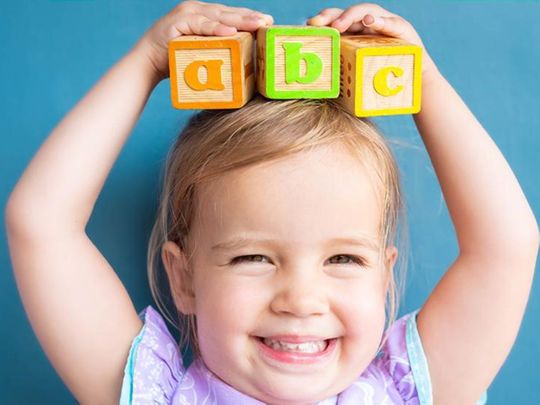
There is no definite age when a child should start learning phonics although most of the early years educators ensure that children are ready to begin this stage of development in their first year of school, aged between three and five, as by this time the children are able to identify all the alphabets, numbers and their sound.
Phonics lessons are used to educate children on how to read and write an alphabetic language independently and are done by demonstrating the relationship between the sounds of the spoken language, letters, groups of letters, and syllables of that written language.
A successful phonics curriculum teaches children to both listen carefully and identify the small units of sounds (or phonemes) that make up a word for them to spell and identify the different sounds made by each letter of the alphabet and blend them together to read a complete word.
The child is made aware of the different sounds around them. This builds their skills in accurate listening and spoken language, which makes them verbally competent in the chosen language of instruction so that they can easily access the curriculum, socialise, and understand all the educator’s instructions and teaching.
The next step is to break down the words into different sounds where they begin to identify that those words are not just made of one sound.
The phonics teacher utilises the child’s memory to teach words that are not phonetically decodable using rote learning methods such as flashcards and memory games.
The child is assessed at every stage so that the nursery can decide where they stand in their learning journey and what they need next. Once a child has demonstrated confident skills in the above steps, they are ready to build phonological awareness and knowledge of the English alphabet, which means they are ready for more focused daily learning.
The writer is the CEO and Founder of British Orchard Nursery












